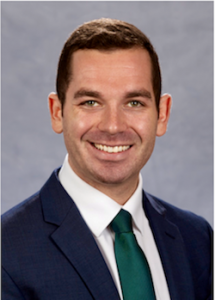Adam Swersky had a Match Day experience that typifies America during the coronavirus (COVID-19) pandemic. When he discovered March 20 that he would be performing his integrated residency at Northwestern University’s McGaw Medical Center, he was in the 10th day of self-quarantine.

“I had been feeling mild flu-like symptoms beginning early the previous week, and chose to self-isolate to mitigate the risk to my friends and local community,” said Swersky, who earned a neuroscience degree and is closing in on his medical degree at the University of Miami in Florida. “Our clinical responsibilities had already been curtailed as a precaution, and I wasn’t a candidate for COVID-19 testing at the time, nor was it prudent to risk exposing others given my symptoms. To be safe, I chose to self-quarantine and manage my own symptoms.”
Medical graduates from across the spectrum spend years looking forward to Match Day. Most years, there would been hundreds of celebrations across the country. With social distancing measures in place, this year was different.
Many future residents, Swersky included, opted for virtual parties with family and friends.
“My colleagues and I were disappointed that we wouldn’t get to celebrate in the traditional fashion, but we understood the gravity of the pandemic and the responsibility it demanded,” he said. “In retrospect, celebrating virtually with my family and friends was uniquely exhilarating. I’ll never forget it. Many friends ask how I’m celebrating considering the circumstances. I tell them that I’ll be celebrating every day for the rest of my life as I pursue my dream career.”
Swersky is pursuing a career in interventional radiology, and he is most interested in oncologic and deep venous interventions. He will complete a one-year surgical internship, followed by three to four years of training in diagnostic radiology and two years of training in interventional radiology at Northwestern.
“As graduation approaches, I’ve been contemplating what it means to be a great doctor,” Swersky said. “I often tell people that in medical school, we learn how to talk, think, and act like a doctor … that it’s not until residency that we learn how to be a doctor. That step is finally here. The pandemic has accelerated and intensified that growing sense of responsibility to become a great doctor.”
It’s a feeling he shares with peers across medical fields. The world will see benefits from the ideas they share during their residencies, some of which could contribute to getting past the pandemic.
“Come July 1, there will be a green but competent new crop of dedicated and driven professionals entering the healthcare system,” he said. “We’re entering at a unique moment that demands the best from us all. Our cohort is ready for the challenge. From Day 1, we’ll do everything we can to help.”


